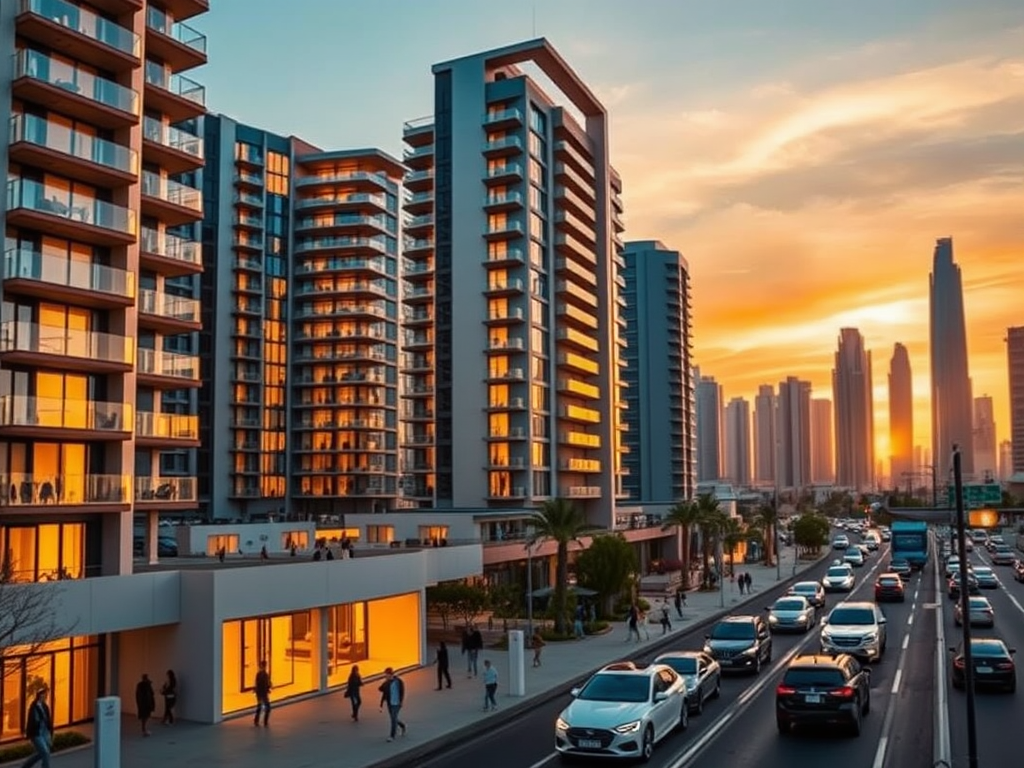Buying property in Dubai as a foreigner can be both an exciting and complex undertaking. The process is designed to be transparent and accommodating, encouraging international investment. While there are many opportunities to own property, especially in designated areas, understanding the legal framework is crucial for a hassle-free purchase. This article outlines the essential steps and legal considerations for foreign buyers looking to invest in the vibrant real estate market of Dubai.
Understanding Freehold and Leasehold Properties

Before diving into the legal process, it is essential to differentiate between freehold and leasehold properties in Dubai. Freehold properties allow foreigners to own land and property outright, while leasehold properties grant ownership for a set period, typically 99 years, after which ownership reverts back to the original landowner. Knowing these distinctions will help investors navigate their options effectively. Here are the key points:
- Freehold properties are available in designated areas, allowing full ownership rights.
- Leasehold properties offer a temporary ownership lasting up to 99 years.
- Foreigners can generally purchase freehold in areas like Dubai Marina, Downtown Dubai, and Palm Jumeirah.
- Leasehold options are often found in areas where developers hold the land rights.
- Understanding zoning laws is essential for investment strategy.
Steps to Purchase Property in Dubai

Navigating the process of purchasing property as a foreigner involves several key steps, each critical to ensuring a legal and successful transaction. The following is a numbered list outlining the primary steps you need to take:
- Research and Select Property: Start by researching different neighborhoods and types of properties that fit your budget and lifestyle.
- Engage a Real Estate Agent: Collaborate with a reputable real estate agent who understands the Dubai market and can guide you through your options.
- Get a No Objection Certificate (NOC): This document is obtained from the developer and is necessary for the transaction process.
- Negotiate Terms and Finalize Sale Agreement: Discuss the terms and ensure all aspects are clear, including payment plans and property maintenance.
- Pay Deposit and Secure Financing: A deposit (usually around 10%) is required, and you should arrange financing if not paying in cash.
- Complete the Transfer of Ownership: The final step is to visit the Dubai Land Department to officially transfer the ownership and pay any applicable fees.
Legal Requirements and Documentation Needed
Foreigners need to prepare various documents regarding their identity and the property to ensure a smooth transaction process. Essential legal requirements include:
- A valid passport and residency visa if applicable.
- The sales and purchase agreement (SPA) between the buyer and seller.
- The No Objection Certificate (NOC) from the developer.
- Proof of payment, including transfer of funds for both deposit and mortgage if applicable.
- Title deed transfer documents that must be filed with the Dubai Land Department.
Additionally, it’s often advised to consult a legal professional who specializes in real estate to ensure all contractual obligations are upheld and legal protocols are followed. This can prevent potential disputes and streamline the ownership transfer process.
Tax Implications and Fees to Consider
While Dubai is famous for its tax incentives, purchasing property involves several fees that should not be overlooked. Understanding these obligations helps in budgeting and financial planning. The primary costs can include:
- Transfer fees typically around 4% of the property’s value.
- A registration fee for the title deed, which may vary based on property type.
- Real estate agent commissions, generally around 2% of the purchase price.
- Management fees if the property is leased, depending on agreements with property management companies.
- Service charges for communal areas and facility maintenance if applicable.
Failing to account for these expenses could lead to unexpected financial burdens, so it is best to review and anticipate these costs from the outset.
Conclusion
Buying property in Dubai as a foreigner can be a rewarding venture when approached with careful consideration and planning. From understanding the types of property ownership to following the legal steps and considering financial implications, knowledge is the key to a successful purchase. Engaging the right professionals and staying informed about the legal landscape will not only facilitate the process but also enhance the investment experience in this dynamic city.
Frequently Asked Questions
- Can foreigners buy property in Dubai?
Yes, foreigners can buy property in designated freehold areas of Dubai. - What is the maximum ownership percentage for foreign investors?
Foreign investors can own 100% of freehold property in designated areas. - Are there any restrictions on selling the property later?
No, once you own the property, you can sell it freely, subject to market conditions. - Do I need a residency visa to purchase property in Dubai?
No residency visa is required to purchase property, but it may be beneficial for living purposes. - What are the typical fees associated with buying property in Dubai?
Typical fees include transfer fees, registration fees, and agent commissions, totaling around 6-7% of the purchase price.



